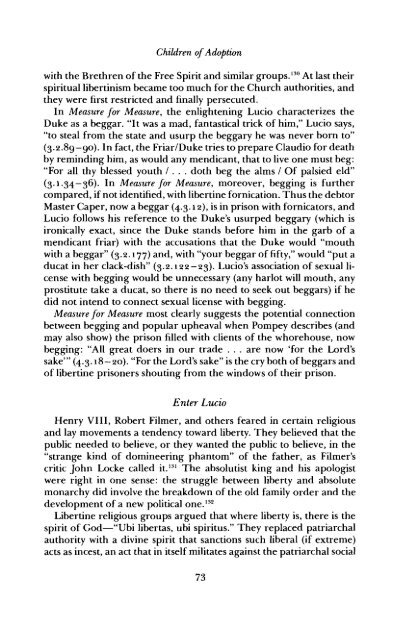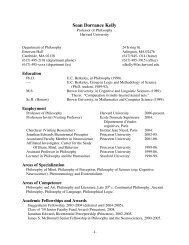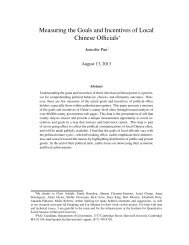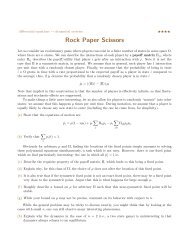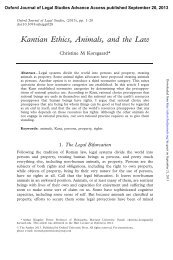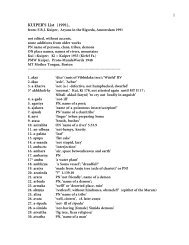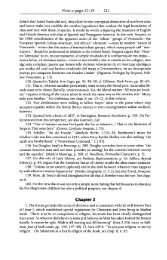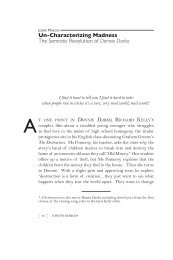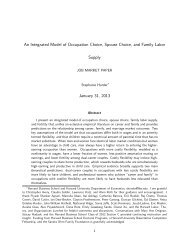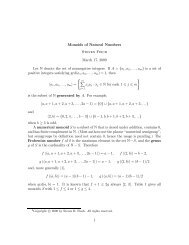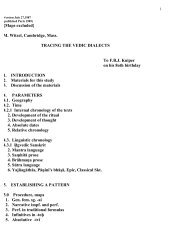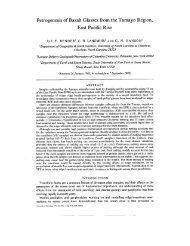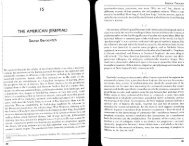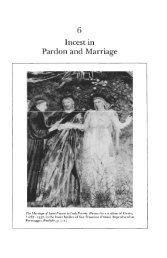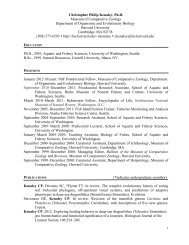Children of Adoption - People Fas Harvard
Children of Adoption - People Fas Harvard
Children of Adoption - People Fas Harvard
You also want an ePaper? Increase the reach of your titles
YUMPU automatically turns print PDFs into web optimized ePapers that Google loves.
<strong>Children</strong> <strong>of</strong> <strong>Adoption</strong><br />
with the Brethren <strong>of</strong> the Free Spirit and similar groups.130 At last their<br />
spiritual libertinism became too much for the Church authorities, and<br />
they were first restricted and finally persecuted.<br />
In Measure for Measure, the enlightening Lucio characterizes the<br />
Duke as a beggar. "It was a mad, fantastical trick <strong>of</strong> him," Lucio says,<br />
"to steal from the state and usurp the beggary he was never born to"<br />
(3.2.89-90). In fact, the FriarIDuke tries to prepare Claudio for death<br />
by reminding him, as would any mendicant, that to live one must beg:<br />
"For all thy blessed youth I . . . doth beg the alms I Of palsied eld"<br />
(3.1.34-36). In Measure for Measure, moreover, begging is further<br />
compared, if not identified, with libertine fornication. Thus the debtor<br />
Master Caper, now a beggar (4.3.1 z), is in prison with fornicators, and<br />
Lucio follows his reference to the Duke's usurped beggary (which is<br />
ironically exact, since the Duke stands before him in the garb <strong>of</strong> a<br />
mendicant friar) with the accusations that the Duke would "mouth<br />
with a beggar" (3.2.177) and, with "your beggar <strong>of</strong> fifty," would "put a<br />
ducat in her clack-dish" (3.2.122 - 23). Lucio's association <strong>of</strong> sexual li-<br />
cense with begging would be unnecessary (any harlot will mouth, any<br />
prostitute take a ducat, so there is no need to seek out beggars) if he<br />
did not intend to connect sexual license with begging.<br />
Measure for Measure most clearly suggests the potential connection<br />
between begging and popular upheaval when Pompey describes (and<br />
may also show) the prison filled with clients <strong>of</strong> the whorehouse, now<br />
begging: "All great doers in our trade . . . are now 'for the Lord's<br />
sake"' (4.3.18-20). "For the Lord's sake" is the cry both <strong>of</strong> beggars and<br />
<strong>of</strong> libertine prisoners shouting from the windows <strong>of</strong> their prison.<br />
Enter Lucio<br />
Henry VIII, Robert Filmer, and others feared in certain religious<br />
and lay movements a tendency toward liberty. They believed that the<br />
public needed to believe, or they wanted the public to believe, in the<br />
"strange kind <strong>of</strong> domineering phantom" <strong>of</strong> the father, as Filmer's<br />
critic John Locke called it.'" The absolutist king and his apologist<br />
were right in one sense: the struggle between liberty and absolute<br />
monarchy did involve the breakdown <strong>of</strong> the old family order and the<br />
development <strong>of</strong> a new political one.'32<br />
Libertine religious groups argued that where liberty is, there is the<br />
spirit <strong>of</strong> God-"Ubi libertas, ubi spiritus." They replaced patriarchal<br />
authority with a divine spirit that sanctions such liberal (if extreme)<br />
acts as incest, an act that in itself militates against the patriarchal social


